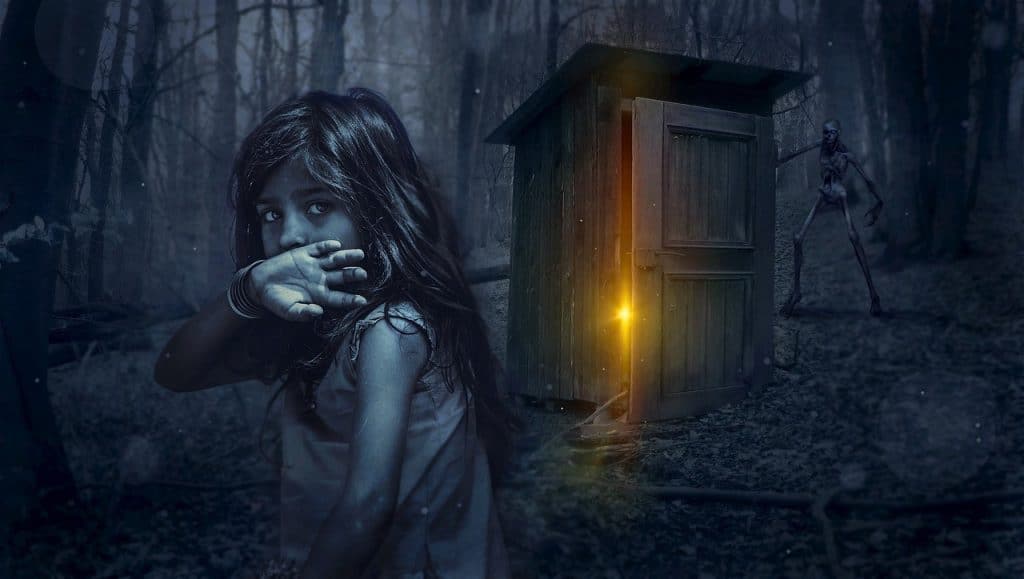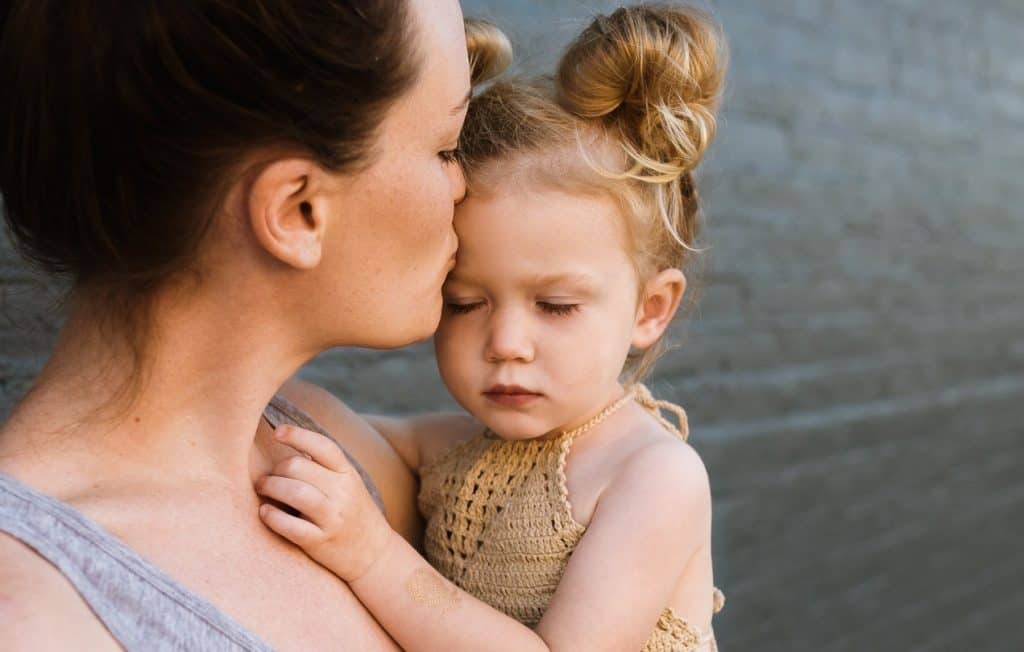Dreams are curious phenomena that allow the dreamer to see a series of images or sensations during the Rapid Eye Movement (REM) stage of sleep. Sometimes, dreams become nightmares, creating upsetting feelings. Children are more prone to having nightmares than adults.
Do babies have nightmares? Babies as young as six months old can have nightmares. Their frequency tends to peak between three and six years old. Nightmares usually occur in the latter part of the night to early morning and shouldn’t be confused with night terrors.
Although most children outgrow their nightmares, some of them get affected in the long term. Therefore, it helps to know the possible causes of this phenomenon among children so parents can help them cope with the occasional or frequent nightmares that haunt them at night.
Do Babies Have Nightmares?

1. Children at Any Age Can Have Nightmares
Research on nightmares in children, especially infants, is limited, given that the subjects have yet to master the art of communication. Therefore, researchers must rely on dream research and observational studies among adults and form correlations based on facts.
Recent research suggests a link between an individual’s dreams and cognitive abilities. Hence, many believe babies don’t experience nightmares because their reasoning and cognitive skills (e.g., information processing, problem-solving, etc.) have yet to develop.
Still, it’s interesting how scientists in the 1950s discovered REM sleep (or the sleeping stage associated with dreaming) while studying sleeping infants. They noticed how babies’ eyes moved from side to side at a rapid pace while sleeping, earning the name Rapid Eye Movement.
Experts believe that newborns and infants need the most REM sleep because their brains are still developing. Since babies spend most of their sleeping time in REM sleep, they can likely have dreams or nightmares.
One study states children at any age can have nightmares. Moreover, the peak incidence occurs among children between three and six years old. The child’s sex doesn’t affect the prevalence of these terrifying dreams, but children beyond six years old experience fewer of them.
2. Nightmares Are Different From Night Terrors

There’s a significant distinction between nightmares and night terrors. Many parents mistake the latter for the former.
Night terrors occur during the first few hours of sleep. Unlike nightmares that transpire in REM sleep, night terrors happen in the non-REM stage, when your infant shifts from wakefulness to light rest.
It’s more common for toddlers and babies as young as 18 months to experience night terrors than adults. According to experts, night terrors occur in about two percent of children from one to eight years old. They usually disappear by age 12 or sooner.
Night terrors can last for a few minutes or up to 30 minutes. Some infants experience them for more extended periods.
You might jolt wide awake upon hearing your child scream in horror in the middle of the night. They might scream endlessly, and no soothing can calm them down. Aside from being agitated, your baby might sweat and become increasingly restless.
You might notice their open, glassy eyes, making them appear awake though they’re not. Your infant might also experience a racing heartbeat and rapid breathing. These scenarios are common among parents of infants or children who experience night terrors.
Despite the commotion, babies won’t recall what occurred during their sleep. Although they can be unsettling at first due to the thrashing and screaming, night terrors are generally not a cause for concern because most infants grow out of them.
The cause of your baby’s night terrors can be several different things. It’s worth mentioning that babies’ central nervous systems (CNS) are still developing. The stimulation they experience throughout the day might lead to overstimulation of the CNS, contributing to night terrors.
It helps to check if your family has a history of night terrors or sleepwalking. If you have a family history of experiencing these, your baby is likely to be more susceptible to night terrors. Your infant might also develop sleepwalking later in childhood.
Aside from overstimulation and family history, sickness and certain medications can also contribute to your baby’s night terrors. Over-exhaustion, stress, poor sleep quality, and new surroundings or environment also play a crucial role.
Although it’s more common for babies to experience night terrors compared to older children and adults, they are rare among infants. In most instances, the crying, screaming, and thrashing are due to other causes.
When your child has night terrors, avoid waking them. Otherwise, they’ll wake up more confused and disoriented. They’ll go back to sleep sooner than you might think, so wait for them to stop thrashing around.
You can prevent your baby from having night terrors by soothing them, adjusting their bedtime routine, and modifying their diet. Because stress can be a primary cause, determine and eliminate the source.
3. There Are Different Possible Causes of Nightmares in Children

Typical Stresses
Even babies go through the strains of daily life, especially as they grow and learn more about the world. These ordinary stresses can play a significant role in the nightmares they experience.
Moving to a new home, going to school for the first time, experiencing loss, or having family issues can also cause nightmares among children. After all, the child might get stressed from such situations. These significantly contribute to occurrences of nightmares.
Vast Imagination
A child’s imagination has no limits, and logic doesn’t apply to this abstract concept. Children tend to think beyond because it’s their instinct to enlarge their cosmos and learn more about what they’re yet to see and experience.
Unfortunately, their vast imagination can cause nightmares. Hearing a scary story or watching a horror movie can also make their imagination go haywire and trigger emotions that’ll manifest in their unconscious.
Traumatic Events
Another possible cause for children’s nightmares is traumatic events. Having these frightening dreams (especially if recurrent) can be a reaction to traumatic situations, such as an accident, a natural disaster, or surgery.
Medical Associations
In some instances, your child’s medical condition contributes to the possibility of them experiencing a nightmare. Nightmares can also be a side effect of medication.
What to Do If Your Baby Has a Nightmare
When your baby is distressed due to a nightmare, it helps to know how to soothe and calm them down. There’s no scientific evidence available regarding preventing nightmares, especially among babies. However, you can do a few things to help them sleep comfortably.
Give Them Reassurance

Nightmares can make a child terrified because these bad dreams will seem very real to them. Therefore, you must be there for your child to cuddle and reassure them. Stay with them until they settle down, or sleep together if they want company.
Soothe them the way they like best. If your child relaxes more when you read a book or cuddle on the bed, do that. Never ignore your child’s genuine feelings regarding the nightmares that terrify them.
When your child experiences recurrent nightmares, they might disturb your sleep. Worse, you might even be angry if you think that nightmares are silly things kids experience because of their active imaginations. However, remember not to show tension at their display of fear.
It helps to encourage your child to go back to sleep instead of asking them about their nightmare. Suppose you force them to recall what terrified them in their dream. It will likely only make matters worse for them.
Show them that you understand even without knowing the details of their dream. Consider getting a baby monitor if your child has a separate bedroom far from yours.
Installing one will help you immediately see and hear if they’re in distress. Remember that you must go to them as soon as you can.
Take Precautions to Reduce the Number of Nightmares

As mentioned earlier, you can’t prevent your child from having a nightmare. However, you can make them feel comfortable enough to reduce the possibility of having them. For instance, you can set a bedtime routine to lighten the mood before putting your child to sleep.
Bathe them before bed, give them pep talks, cuddle them, read them a book, or play relaxing music. A warm and cozy room can also make them calmer and more comfortable. Don’t let your child go to sleep excitedly; follow a regular sleep schedule.
Help Your Child Work through Their Fears

You can talk to your child about their nightmares during the day. They might not remember the bad dreams, but you can tell them what they can do if they experience them again. For instance, you can reassure them that having nightmares is normal and many children experience them.
If your child is a little older, encourage them to think of an alternate ending to the nightmare if they recall it when they wake up. Ask them to imagine a strong person (perhaps a superhero they love) to shield them from scary things or people from their dream.
They can even envision using a magical weapon to protect themselves. For visual-oriented children, writing or drawing picture stories can work better. Essentially, it’s best to help your child face their fears in a way that won’t push their emotional or mental boundaries.
Lastly, listen to your child’s worries and gently ask them about their fears. If you can do something to eliminate the source of their dread, it’ll be a great help to them. For example, if they’re afraid of monsters outside their window, perhaps you can cover it with a curtain at night.
When to See a Doctor
Children or adolescents diagnosed with pediatric post-traumatic stress disorder (PTSD) might experience frequent and recurrent nightmares. These frightening dreams usually don’t merely go away. Therefore, a psychological intervention might be needed.
If not addressed, the child might face problems or issues that can disrupt their daily life. For instance, they might develop an anxiety disorder besides a lack of sleep. Depending on their condition, their doctor might prescribe medications.
Final Thoughts
Pay attention to your baby’s behavior to determine if they’re experiencing a nightmare or a night terror. After all, many confuse one for the other. It’s worth noting that, sometimes, the signs point to other serious medical problems that need immediate attention.
Suppose your child experiences nightmares at least twice per week, which occurs for more than six months. In that case, they might need to take a comprehensive psychological evaluation. Depending on the circumstances, their doctor might require psychological counseling.